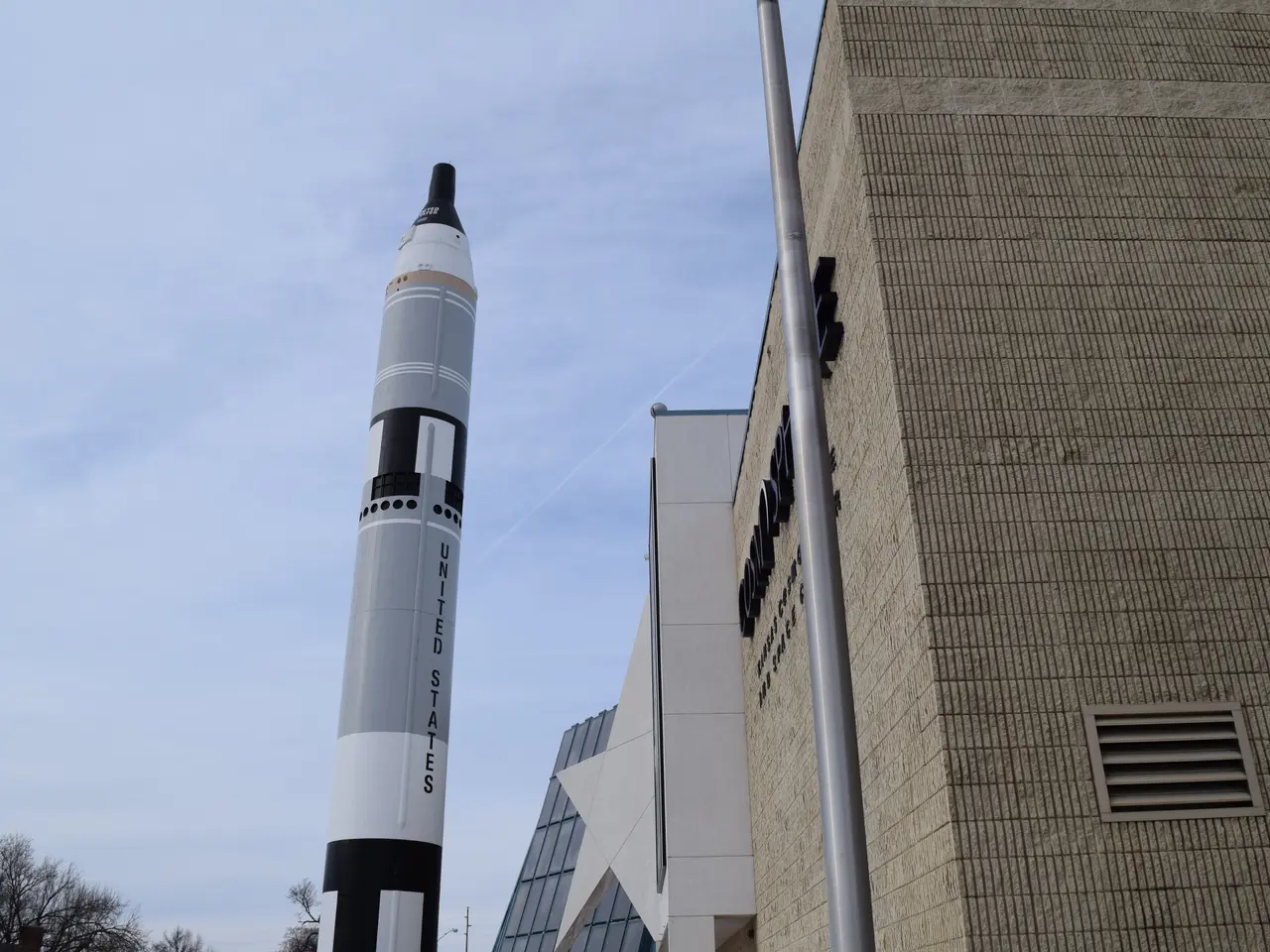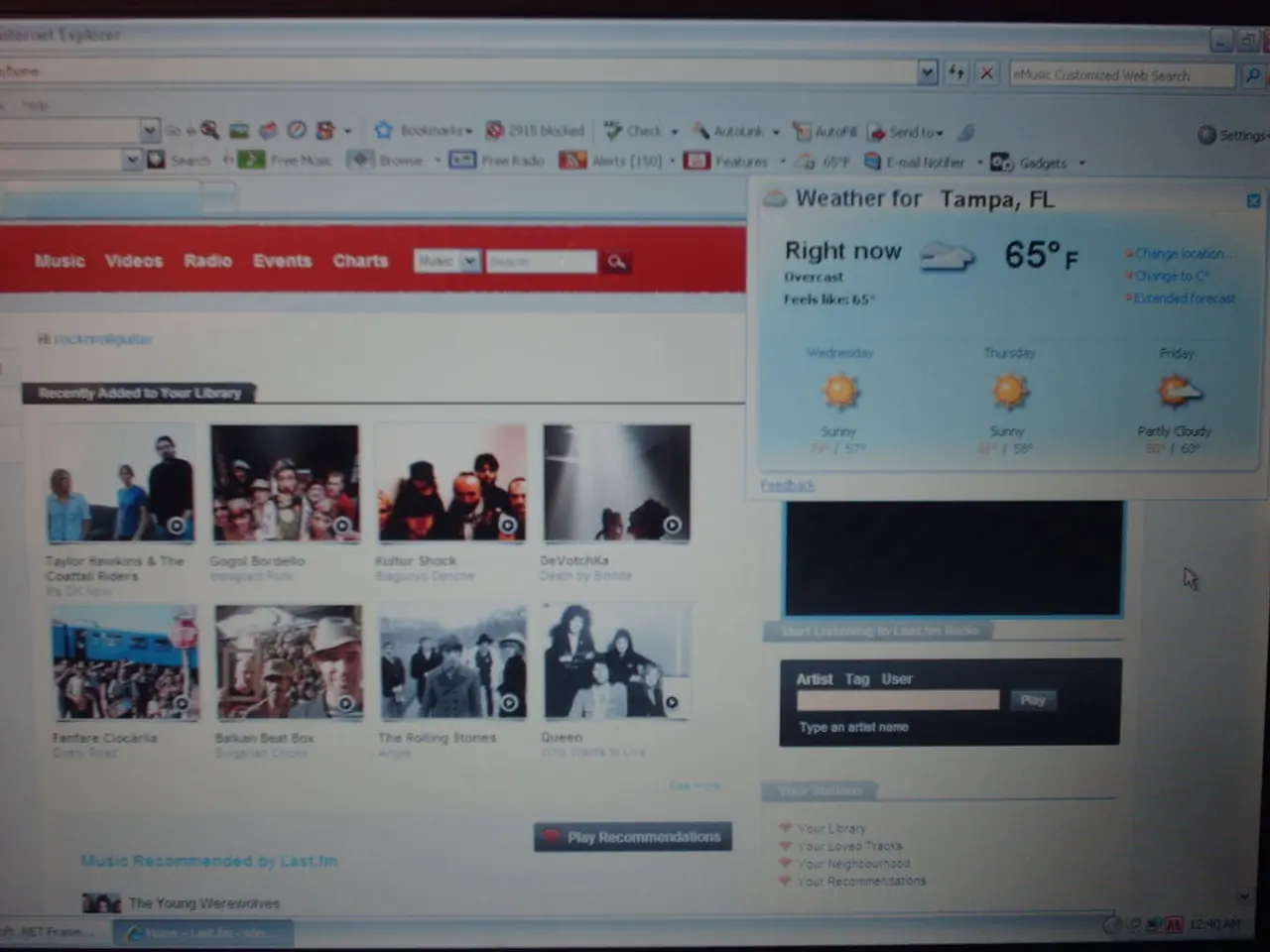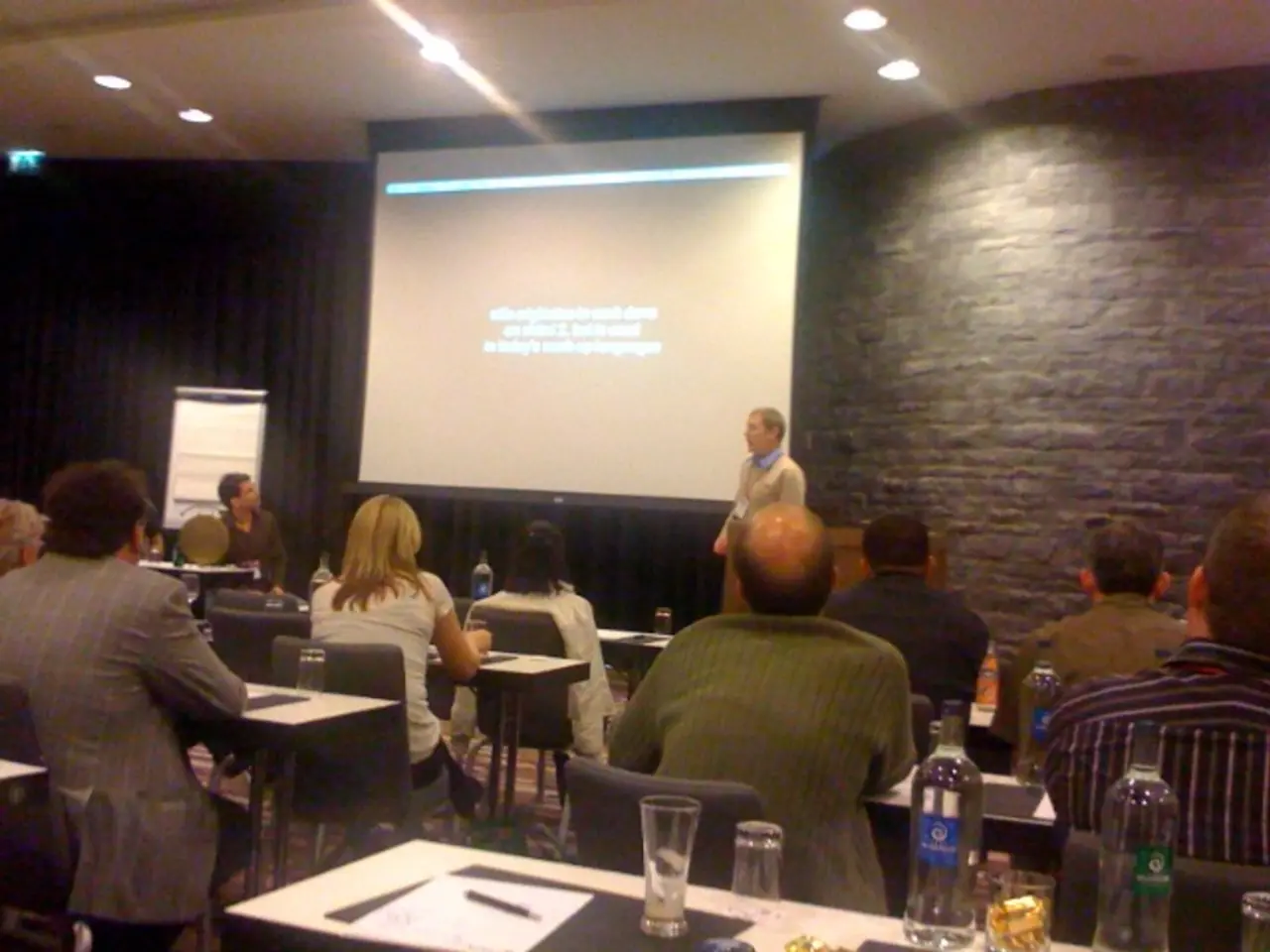Guide for young space enthusiasts seeking employment in astronomy or space industry
The UK space industry, worth an impressive £16.4bn annually and employing over 45,000 people, offers a diverse range of career opportunities for those with a passion for science, technology, engineering, and mathematics (STEM). From astronomers to software developers, the sector invites a wide array of professionals to join its ever-expanding horizons.
The Essential Qualifications
To excel in the space industry, one must possess a versatile skillset, encompassing physical fitness, excellent motor coordination, teamwork, resilience under pressure, exceptional communication skills, and patience. However, the specific qualifications for key job roles require degrees in relevant STEM fields.
Key Job Roles and Their Qualifications
- Aerospace Engineer: Design, build, and test spacecraft, satellites, and launch vehicles, typically with a bachelor’s or master’s degree in aerospace engineering or mechanical engineering.
- Satellite Systems Engineer: Integrate complex subsystems like communications, power, and propulsion, with degree requirements in aerospace, electrical, or systems engineering and strong interdisciplinary skills.
- Propulsion Specialist: Develop rocket engines and propulsion technologies, including green propellants and ion thrusters, with a background in aerospace or mechanical engineering.
- Robotics and Mechatronics Engineer: Design robotic systems for planetary exploration and satellite servicing, typically with mechanical, electrical, or robotic engineering degrees and expertise in control systems.
- Flight Software Engineer / Software Developer: Program spacecraft control systems, telemetry, and mission software, requiring computer science or software engineering degrees, proficiency in programming languages, and experience with embedded systems or simulation software.
- Data Scientist / Data Engineer / Geospatial Analyst: Analyse satellite and space mission data for applications like climate monitoring or urban planning, with degrees in data science, computer science, or related quantitative fields.
- Cybersecurity Specialist: Protect space mission data and control systems from cyber threats, with cybersecurity, computer science, or information security qualifications and certifications.
- Quality Assurance and Systems Validation Engineer: Ensure hardware and software reliability under extreme space conditions through rigorous testing and validation, usually with engineering degrees focused on systems, quality assurance, or testing methodologies.
- Technical Writer: Develop documentation and manuals related to space systems, generally with a background in technical communication and knowledge of engineering principles.
- Cloud Architect / Software Architect: Design cloud-based infrastructure to support space missions and data storage, requiring computer science or software engineering degrees, with expertise in cloud technology and systems architecture.
- Meteorologist and Geologist: Support space missions by providing expertise on atmospheric conditions or planetary geology, with degrees in meteorology, geology, or earth sciences.
- Spacecraft Operator / Service Operation Specialist: Manage satellite operations and mission support activities, often with engineering degrees coupled with operational experience in mission control environments.
- Policy Analyst / Space Lawyer: Focus on regulations, policies, and international treaties governing space activities, with qualifications typically including law degrees specialized in space law or public policy.
The Academic Route
An academic route into the space sector might include GCSEs, A-Levels, a university degree, and possibly a postgraduate qualification, such as a PhD. Top universities offering relevant programs include MIT, Caltech, University of Cambridge, University of Tokyo, and University of Arizona, noted for aerospace engineering and planetary sciences.
Supporting the Space Sector
Beyond the STEM disciplines, the space industry offers career opportunities in business, web development, writing, accountancy, art, scientific research, data analysis, computing, and medicine. Resources such as BBC Bitesize, UK Students for the Exploration and Development of Space (UKSEDS), and work experience schemes like Space Placements in INdustry (SPIN) can help individuals explore these possibilities.
Preparing for the Future
With seven new spaceports planned to be operational in the UK within the next few years, the space industry continues to grow, offering exciting opportunities for those with the right qualifications and skills. Apprenticeships in the UK space sector, available at different levels and from organizations like Airbus, Rolls-Royce, QinetiQ, SSTL, Reaction Engines, RAL Space, and the National Space Academy, provide on-the-job training while being paid for work.
Leading the Way
Notable figures in the UK space industry include Sheila Kanani, Education, Outreach and Diversity Officer at the Royal Astronomical Society, who holds a Master’s degree in Physics and Astrophysics from the University of Manchester and a PhD in Planetary Science from Mullard Space Science Laboratory. Sheila has experience working with the radio telescope at Jodrell Bank, using pulsar timing data to look for exoplanets around pulsars.
As the space industry continues to expand, the need for a highly skilled workforce with interdisciplinary expertise covering engineering, computer science, data analytics, and policy grows. Embracing this challenge, the UK space sector is poised to lead the way in space exploration and innovation.
- Astronauts and aerospace engineers often work together to design, build, and test spacecraft, satellites, and launch vehicles, requiring degrees in relevant STEM fields.
- The UK space sector employs a diverse workforce, inviting professionals ranging from astronomers to software developers to join its ever-expanding horizons.
- To study the cosmos, astronomers often use telescopes to observe distant galaxies, black holes, and other celestial bodies, relying on their physics and astronomy degrees.
- Satellite systems engineers integrate complex subsystems like communications, power, and propulsion, necessitating degrees in aerospace, electrical, or systems engineering and strong interdisciplinary skills.
- Gravitational waves, fascinating ripples in the fabric of spacetime, are detected by advanced telescopes and studied by physicists and astrophysicists to better understand the universe.
- Planetary science and space research often involve exoplanets, Earth-like planets orbiting other stars, which are studied to help us understand the potential for life beyond our solar system.
- Space exploration and innovation are key drivers of the space industry, pushing the boundaries of human understanding and capacity, from the cosmos to the farthest reaches of the solar system.
- The space industry offers educational opportunities for individuals interested in STEM through resources like BBC Bitesize, UK Students for the Exploration and Development of Space (UKSEDS), and Space Placements in INdustry (SPIN).
- The UK space sector values diversity and offers a range of career opportunities for those with degrees in a variety of STEM subjects, from space law to planetary geology.
- Space science, space exploration, and education-and-self-development are all interconnected, playing crucial roles in our overall understanding of the universe and fueling our continued exploration of the cosmos.




